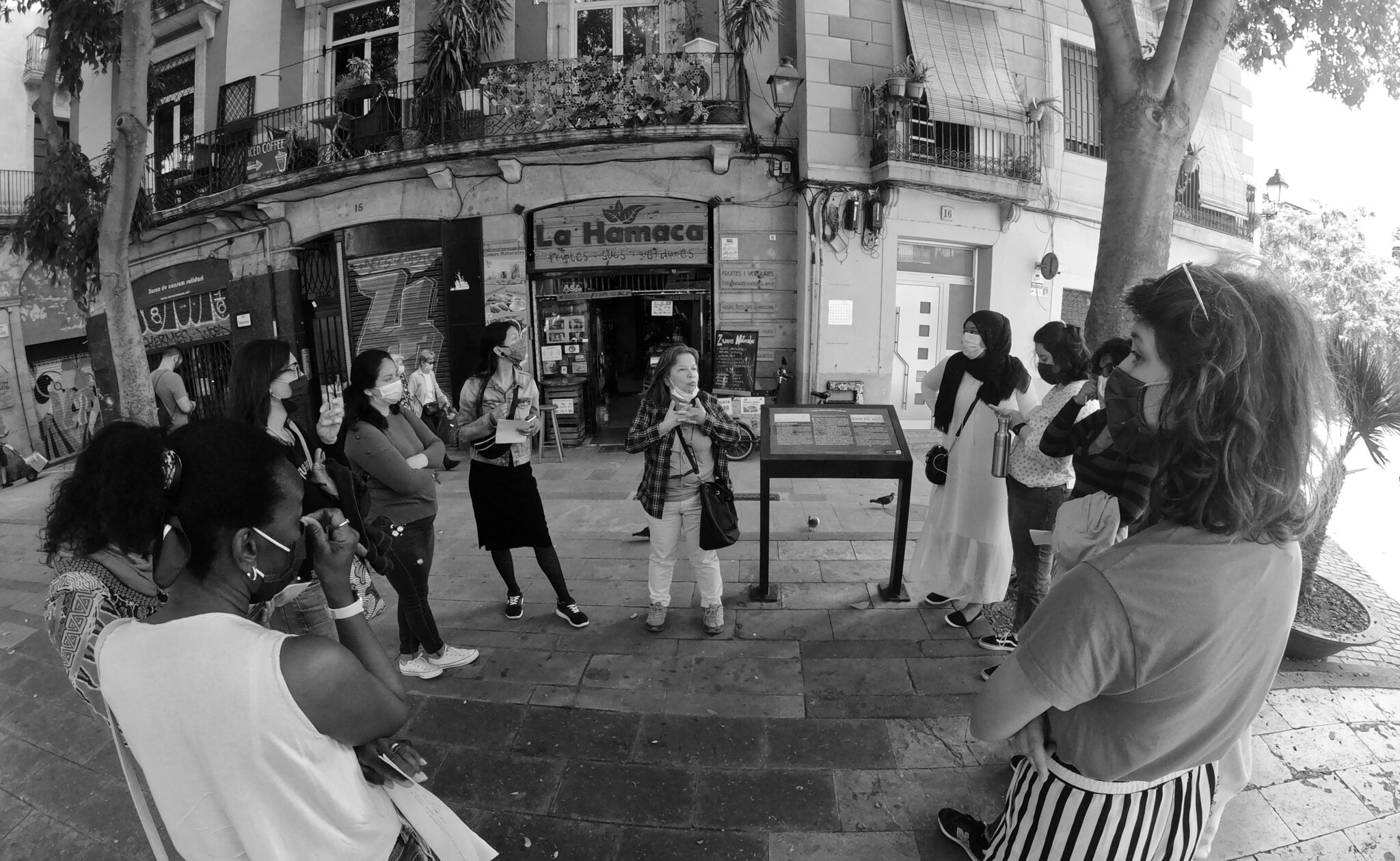
Brief description
The activity involves developing a tour of the city in collaboration with local activist collectives, to reflect on the patriarchal, colonial and racist system, its intersections and the actions of resistance against them promoted by social movements.
It is motivated by the need to change the notion of knowledge as something that only takes place in the university and to situate it in relation to the past and present local context. In this way, the interest is placed on exposing other knowledge outside the classroom, materialized in spatial landmarks of the local context and that make the idea of knowledge more complex by articulating different dimensions (corporal, narrative, spatial, etc.).
We consider the creation and execution of the tour as a network strengthening experience. While the people who make the tour participate in training and empowerment processes for the purpose of knowing and telling stories relevant to society; the people who participate in the tours as visitors, can learn through the movement specific facts and places related to the past and present of violence and resistance. In this way, the teaching-learning process is based on sharing, materialization and localization of the contents addressed, creating processes of interpellation and reflexivity about these issues.
Objectives
- To visualize through routes, spatial landmarks that show enclaves of the patriarchal, colonial and racist system, as well as actions of resistance against these systems generated by social movements.
- Positioning activist know-how as knowledge about the systems of oppression that shape today’s society.
- Reflect on other forms of teaching-learning outside the classroom, which place knowledge in the local space as a pedagogical resource.
Procedure
- The starting point is the present: Considering anti-racist, feminist and migrant struggles, define a theme to be addressed during the tour.
- Now travel to the past: Research on the history of the chosen theme in the city: use archives, interviews, documentary material, press, academic material, experiences, etc.
- Read the past with the eyes of the present: Critically link that history to what is happening in the city today. What new glimpses of the present does this history offer?
- Materializing reflections: Identification of places in the city that allow us to talk about these stories based on significant events for the narrative.
- Plotting the route and creating the narrative script considering:
- Presences and absences in the history of the city.
- Relations of power and resistance.
- Continuities and discontinuities between present and past.
- Active role of the participants during the tour.
- Definition of axes for joint reflection on the experience of the students during the tour, considering the key points of the narrative script and how these stories question us.
- Carrying out the tour through the city with the group.
Considerations
- Before starting the activity, it is important to be clear about the time it takes to get to the different stations along the tour route and the travel time between one place and another.
- It is suggested that the total activity should not last more than an hour and a half. When defining the routes and times, keep in mind that the tour includes physical activity and reflection, taking care of the energy of the participants.
- Choose the moments when reflection will take place, for example, at each stop or at the end of the journey.
Expected Results
- Reflection on the patriarchal, colonial and racist system through history, corporeality and the relationship with space.
- Learning about the role of social movements in the resistance against these systems of oppression.
- Recognition of activist knowledge as valid knowledge about the systems of oppression that shape today’s society.
- Learning about the potential of other forms of teaching-learning, situating knowledge in the local space.
- Active participation in processes of creation of historical narratives about the city, reflecting on the link and responsibility of the university on what happens in the context, beyond theoretical analysis.
Suggestions for online activity
Once the tour is created and the route is established, we suggest a way to present it to people who are not in the same physical context and want to live the experience online. Giving added value to new technologies and creating another possibility of access to this pedagogical tool of the tours.
- In order not to lose the city tour, we suggest using a hybrid format. The tour takes place live in the city and access to it is given through the videoconferencing platform.
- In the transfers between one stop and another, you can show the group visual elements collected from the previous research (images, documents, etc.). We suggest creating a dossier with key questions for reflection among the participants.
- Provide a platform that allows participants to record their opinions, questions and reflections. Virtual whiteboards, collaborative writing platforms, or group chats can be used.
Resources for Inspiration
This activity is inspired by the creation made by Sindicato de trabajadoras del hogar y los cuidados de Barcelona, the tour “La huella de las mujeres” (the footprint of women). This route addresses the struggles of women in the city, giving an overview of the different collectives and interests that are articulated in this category, as well as the links of some struggles with others. The main objective of this tour is to give an insight into feminist and anti-racist movements as struggles for the sustenance of life, which have had various forms of expression throughout the history of Barcelona.


